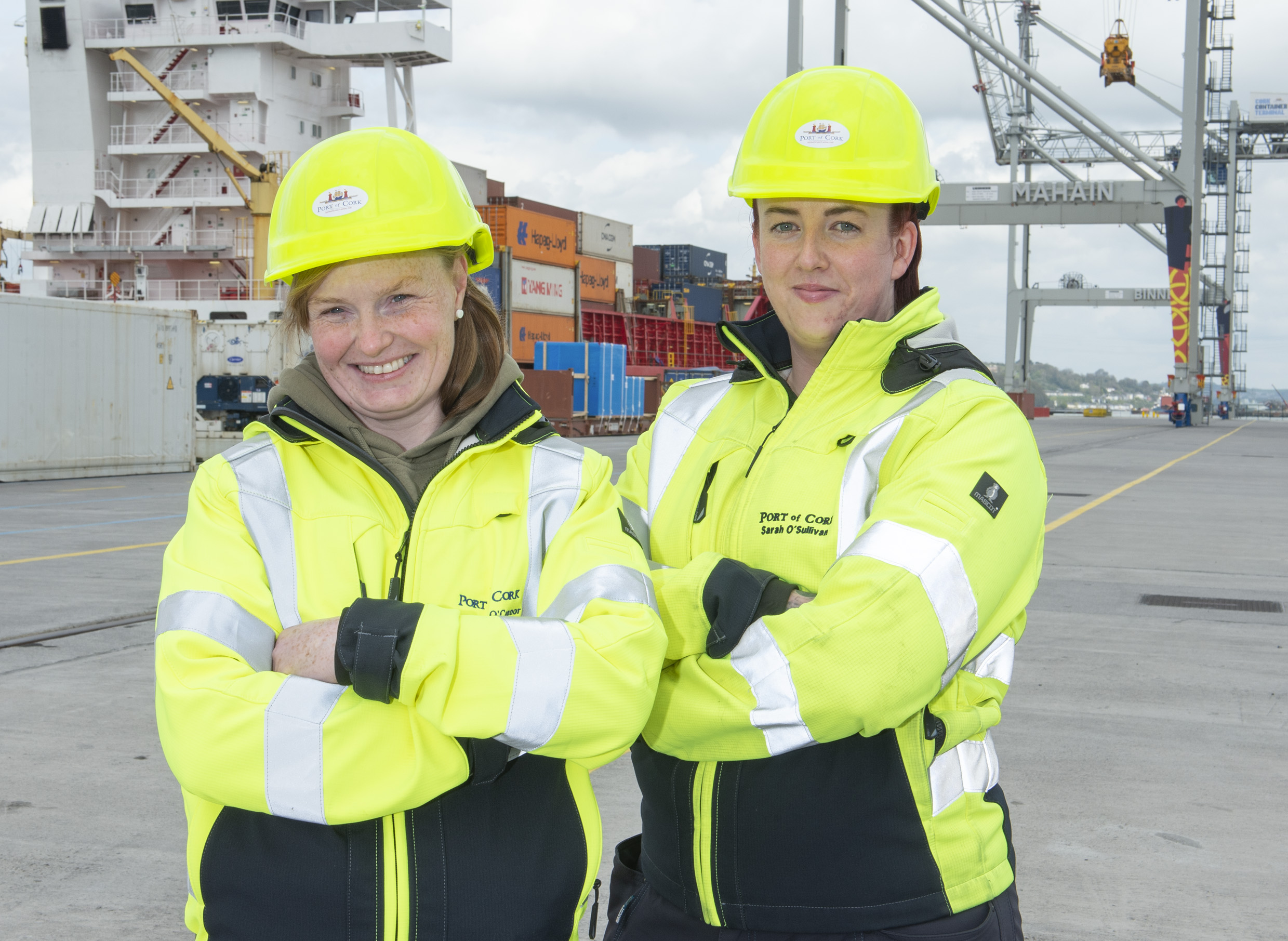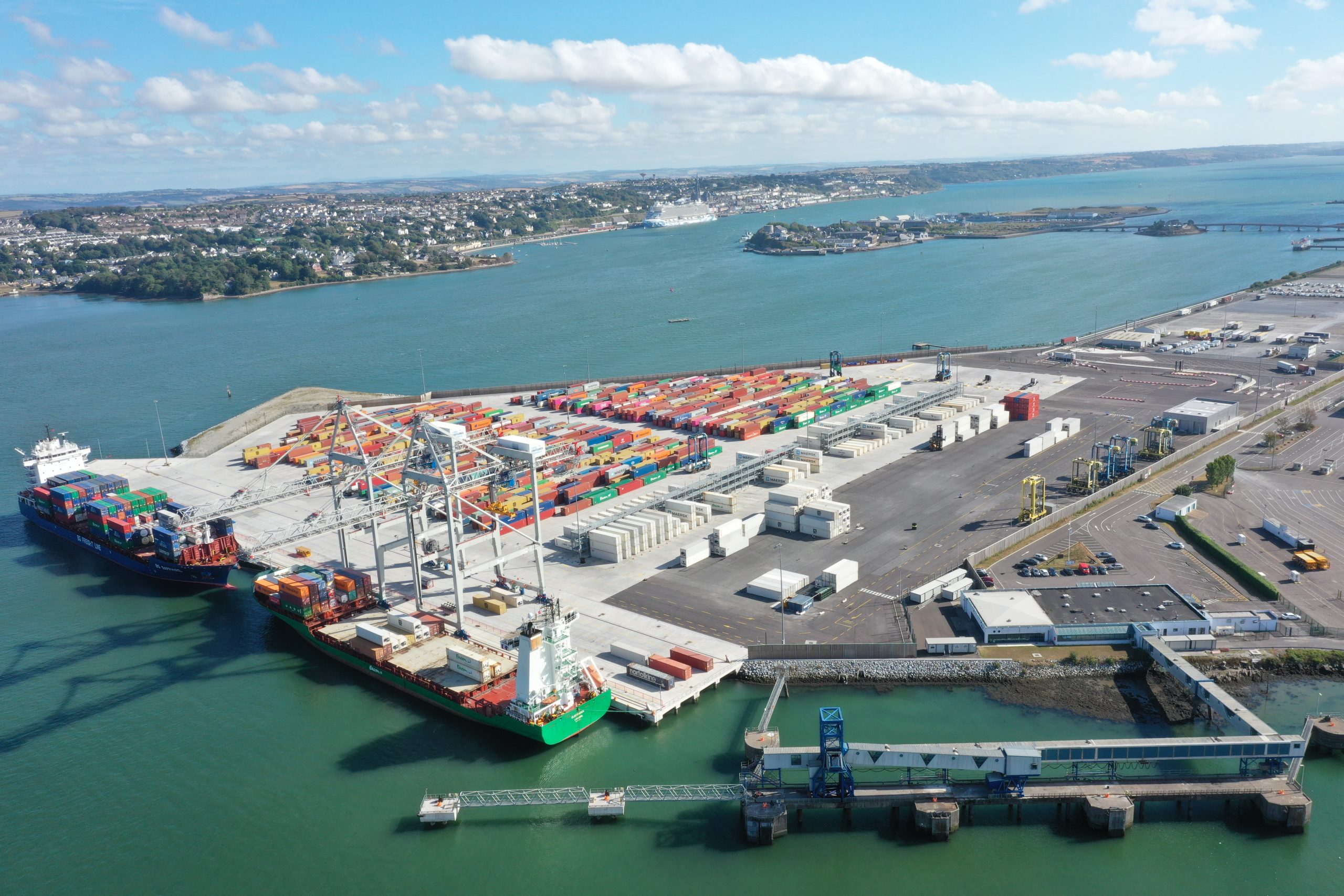Turning the Tides on Gender Equality and Diversity: Port of Cork Company Publishes First Gender Pay Gap Report

The Port of Cork Company (PoCC) has published its first Gender Pay Gap Report, showcasing its commitment to fostering inclusivity and empowering women in the maritime industry.
The report reveals an overall gender pay gap of 23%, primarily due to an imbalance among its workforce, with 11% female employees and a predominance of men in senior management positions and therefore higher pay scales. It is important to note that both men and women receive equal pay for equivalent positions throughout the Port of Cork Company – the pay gap is due to a need for more female representation in the Port’s most senior roles.
Despite the reported percentages exceeding the published national average (12%), the figures are consistent with other male-dominated industries such as construction and insurance. This emphasises the broader challenges and the necessity to increase female representation at the highest levels in traditionally male-dominated industries.
Coinciding with European Diversity Month, the Port is using this opportunity to underscore the importance of enhancing female representation at all organisational levels, particularly in management positions, to actively address the gender pay gap.
Commenting on the report, Sinead Healy, Human Resources Manager at the Port of Cork Company stated, “Reporting our results voluntarily this year acknowledges where we are and publicly demonstrates our dedication to creating a transparent, inclusive, and supportive work environment. With 11% of our workforce being female, and nearly half of them occupying positions in the lower pay quartile, our gender pay gap naturally reflects an imbalance. While our figures may appear higher compared to the national average, they align with other industries predominantly comprised of male personnel, such as finance, banking/insurance, and construction. Acknowledging this gap is key to reducing it and creating positive change.”
The report also reveals PoCC’s dedicated Diversity and Inclusion (D&I) Action Plan, outlining the steps the company is taking to improve its gender pay gap and increase female representation within the company.
Highlighting Success Stories
As part of EU Diversity Month, an initiative driven by the European Commission to shine a spotlight on the importance of diversity and inclusion in the workplace, PoCC is celebrating and highlighting the achievements of the company’s female employees and D&I initiatives in recent years.
In 2023, the Port of Cork Company released its first D&I Policy Statement, outlining the company’s commitment to nurturing an inclusive work environment where all employees feel welcome, respected, and valued. Following this, the company also received an Investors in Diversity Bronze Award from the Irish Centre of Diversity, in recognition of its efforts.
Further highlighting the company’s D&I success stories are Samantha O’Connor and Sarah O’Sullivan, both Straddle Carrier Drivers at the Port of Cork Company, who made company history as the Port’s first female operators in 2022/2023.
Sarah O’Sullivan joined PoCC three years ago as a Terminal Interchange Assistant (TIA) and was the first female on the operations team. Sarah has since undergone development training and is now a Cargo Handling Equipment Operator. Samantha O’Connor joined shortly after Sarah and is the company’s first female Straddle Carrier Driver.
As the first female operators in company history, Samantha O’Connor and Sarah O’Sullivan exemplify the transformative power of opportunity and empowerment. Their journey serves as an inspiration for aspiring women in the maritime industry.
Commenting on her role, Samantha stated, “Every day is different at the Port of Cork. It’s a fast-paced and exciting job where your actions matter. Working as part of a team, efficiency and effective communication are some of the key skills required for the day-to-day job as well as the essential technical expertise. I am proud to be the first female driver in the company and hope that more young girls and women interested in maritime, transport and logistics, consider this industry as a career. There are many training and development opportunities available to upskill or re-skill in different areas across the business, as well as opportunities to take these skills with you anywhere in the world. I really hope to see more women turning the tides on gender equality and evening the playing field within the maritime industry.”
To find out more, please visit Gender Pay Gap Reports | Port of Cork
About Port of Cork Company
The Port of Cork is the world’s second-largest natural harbour and a key international trade gateway. It is the key seaport in the south of Ireland and is one of the three Ports of National Significance (Tier 1) as designated by National Ports Policy.
The National Ports Policy mandates Tier 1 Ports to lead the response in meeting Ireland’s future port capacity requirements. In this capacity, the port is also central to the national economic growth given that national ports handle approximately 90% of all imported and exported tonnage in Ireland.
As a multi-model port it is only one of two ports in Ireland to service all six shipping modes – lift on/ lift off, roll-on/ roll-off, liquid bulk, dry bulk, break bulk and cruise.
The Port of Cork Company (PoCC) is a commercial semi-state company responsible for the broad range of commercial running of Cork harbour as well as the navigation and berthage in the port.
In 2022, the Ports of Cork and Bantry reported a total consolidated traffic throughput of 10.2 million tonnes. The PoCC’s direct workforce is 170 staff, however, it supports thousands of jobs through indirect employment through warehouses, hauliers and shipping agents.
PoCC is a hugely important catalyst for trade and employment, offering direct connectivity to a global supply chain, particularly for FDI. 35 of its top customers are from industries such as Med-Tec, Pharma, IT, chemical and Agri-Food accounting for €145 billion of manufacturing and supporting over 45,000 jobs directly in the southwest region.
